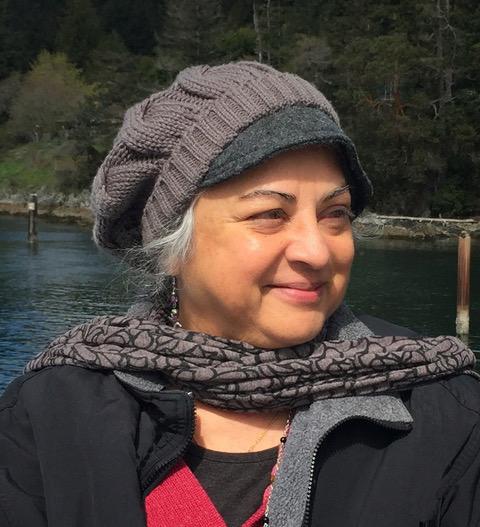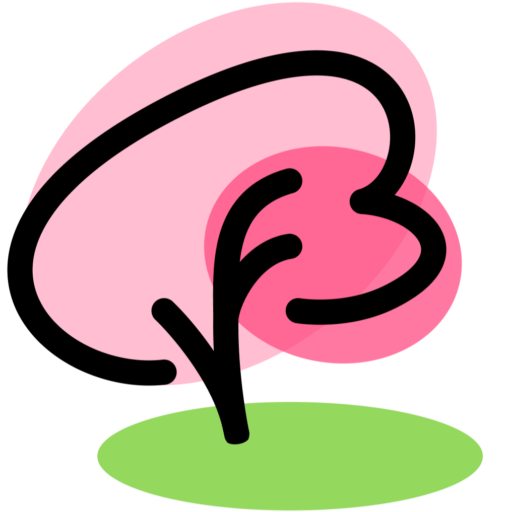Elehna de Sousa

a painting
in a puddle . . .
cherry blossoms
elehna de sousa
Salt Spring Island, British Columbia
Congratulations on having your haiku selected as the top winner in the British Columbia category in the Vancouver Cherry Blossom Festival’s 2022 Haiku Invitational contest. How did you first learn about haiku, and how much writing of haiku or other poetry have you done?
Thank you! I first learned about haiku when I attended a poetry workshop in Toronto. The workshop wasn’t exclusive to the form of haiku but it was included, so I had only a tiny taste. I experienced a more in-depth exposure to haiku during an afternoon workshop offered by the Toronto chapter of Haiku Canada at the Deer Park Library in Toronto in November 1999. We were a small group and everyone took a turn at having their haiku workshopped. This interactive style of learning was perfect for me, and I was hooked.
I’ve been writing poetry since I was a child growing up in Hong Kong. In fact, my first published poem appeared in the Children’s Corner of the South China Morning Post (newspaper) when I was six. It was a limerick. Poetry was an avenue through which I was able to express myself in childhood and adolescence—it was probably a lifesaver for me. My poetic inclination went dormant in adulthood while I was busy raising my daughter and working as a psychotherapist. When that chapter was over, I began to write again. I was in living in Hawaii at that time.
What was the inspiration for your winning poem?
I’ve been submitting cherry blossom haiku to the contest since it began in 2006. My haiku and tanka are mostly autobiographical and inspired by real-life moments, and my cherry blossom poems started out this way too. But after sixteen years, I now find it necessary to stretch myself a little further into the realm of the imagination. The winning poem is actually a composite of two concrete images (cherry blossoms and a rain puddle) that amalgamated into one with a little imaginary twist (a painting). The exact moment? I was gazing at a big rain puddle, thinking about a haiku for the contest, emptied my mind to receive a poem and voilà, it appeared almost the way it is except that I changed the last line from “reflections” to “cherry blossoms.”
Describe the moment when you first learned you had won.
I get about 100+ emails every day and I delete as quickly as I can. I had just watched a webinar hosted by a woman with a very similar name to Isanna Wong (from the Vancouver Cherry Blossom Festival), so I almost deleted it. But as I was skimming through, I realized that it might actually be a personal email so I went back to the top and lo and behold, surprise surprise! I could hardly believe it, especially after so many years of submitting to the contest. It took a while to sink in, and of course I was thrilled. Who did I tell? A handful of close friends who I correspond with frequently and have shared many haiku with, a couple of friends in the haiku community, and my daughter in Toronto.
Do you have favourite books or websites relating to haiku that others might benefit from to learn haiku as a literary art and to share one’s haiku?
Even though I create and write haiku and tanka, I’m sorry to say that these days I don’t read as much as I would like to. I have some chronic eye issues and staring passively at a screen or reading the printed word quickly becomes a strain. However, at the beginning of my haiku journey I did read a fair bit and have a section of my library dedicated to haiku and related forms. I always enjoy the anthologies, the annual Haiku Canada members’ anthology being one. I especially enjoy reading poems written by people I’ve met, whether virtually or in person. It’s great to be able to connect a poem with a visual of its author. My haiku contacts have definitely increased since the pandemic and resulting Zoom events held by the Vancouver Haiku Group, Haiku Arbutus (Victoria), and both Haiku Canada and Haiku Society of America conferences, as well as the Seabeck Haiku Getaway gathering that happened on Zoom in 2020. These opportunities to learn from and share with the haiku community have really enriched my life.
Please tell us more about yourself.
I dedicated my former life in Toronto to raising my daughter who was then, and still is, the most important person in my life. I also worked in the field of the healing arts with a focus on psychotherapy. I enjoyed those two chapters but destiny and an interest in shamanism took me in the direction of Hawaii where l spent some very special years deeply immersed in the culture and the elemental energies of the land.
When I returned to Toronto, I found it difficult to adapt back to an urban lifestyle, which had never really suited me in the first place. So, five years later, I took a leap of faith, packed up, and moved to Salt Spring Island, British Columbia, where, on one of my many travel adventures, I had visited for a brief two days in 1990. During that visit I had purchased a charming little hand-hewn home on a large acreage of land and rented it out for thirteen years. Then, in 2003, I was finally able fulfill my dream of living in a rural setting surrounded by the beauty of nature and the sea. I arrived with Eto, my beloved Shih Tzu, not knowing a soul on the island, but ready for a new adventure.
As I settled in, the latent artist in me began to blossom. As well as haiku and related forms, which I had already been exploring, I became active in visual art (mixed-media), print making, and photography. In 2005 I published a chapbook of haiku and photography, A Shower of Blossoms, which the wonder of my new life had inspired. Shortly thereafter, I attended a Haiku Canada gathering in Vancouver, picked up a copy of Footsteps in the Fog (a 1994 tanka anthology edited by Michael Dylan Welch) and discovered tanka. I was immediately drawn to that lyrical, personal, and more emotional style of poetry.
My interest in healing has never waned however, and I spend a great deal of time tuning into webinars and programs that span a range of topics from the physical to the metaphysical. I also practice Qi Qong daily, incorporating what I have learned from various teachers over the years. Even though my life is rather solitary, now that I’m 70 it sometimes feels a bit too solitary, so I stay connected with friends all over the world via the Internet. This, as well as my varied interests, and the management of home and property, keep me occupied and the days go by quickly.
How does where you live and what you enjoy doing affect the way you write haiku?
A peaceful life on a small island surrounded by the sea and nature offers an abundance of opportunity for creative inspiration. I love dropping into inner spaces of quietude and it’s in these deep states of repose that my poetry muse comes to me. I am so grateful to be here, and to have the freedom to do what I love to do every day.

